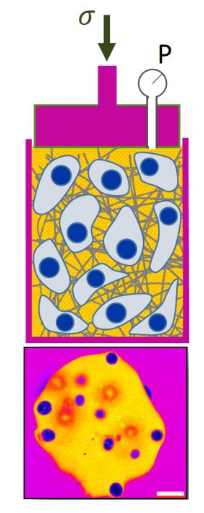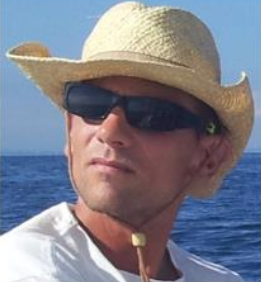

Is Extracellular Matrix a Pressure Sensor?
11 January, 2019 @ 12:00 pm - 1:00 pm
 Dr. Cappello obtained his PhD in Physics in Université J. Fourier, Grenoble in 1999. He served as a CNRS researcher at the Physico-Chimie-Curie Laboratory of the Curie Institut working on single molecule approach to the molecular motors and DNA-Protein interaction from 2002 to 2013. He is currently the CNRS Director at the Laboratoire Interdisciplinaire de Physique, University of Grenoble. His research is focused on growth of tumors under mechanical stress.
Dr. Cappello obtained his PhD in Physics in Université J. Fourier, Grenoble in 1999. He served as a CNRS researcher at the Physico-Chimie-Curie Laboratory of the Curie Institut working on single molecule approach to the molecular motors and DNA-Protein interaction from 2002 to 2013. He is currently the CNRS Director at the Laboratoire Interdisciplinaire de Physique, University of Grenoble. His research is focused on growth of tumors under mechanical stress.
Growth of solid tumors occurs in a constrained environment and requires a competition for space. This results in a bidirectional mechanical coupling between the tumor and its close environment, the stroma. The expanding neoplastic tissue compresses the stroma, thus builds up, and stores an internal stress; in parallel, the stroma is contractile and exerts a mechanical stress on the tumor.
To evaluate the effect of such a stress, we grow multicellular aggregates made of cancer cells under a controlled mechanical pressure. We observe that a gentle compression (500 Pa) drastically reduces the growth rate of spheroids made of cancer cells, whereas it has no impact on the same cells, when grown individually.
A major difference between individual cells and multicellular aggregates is the presence of Extracellular Matrix (ECM) in the multicellular context. Contrarily to cells, which are almost incompressible, the ECM is permeable to water and highly compliant. Thus, a gentle compression generates a much larger strain in the ECM than in the cells. Thus, we model and characterize the compressibility and the permeability of composite aggregate, made of cells and ECM.
We find that ECM properties mainly determine the mechanical response of a multicellular aggregate to external stimuli. In addition, we observe that the ECM compression has a large impact on cell proliferation, migration and morphology. We conclude that the ECM play the role of a pressure sensor in a multicellular context.
